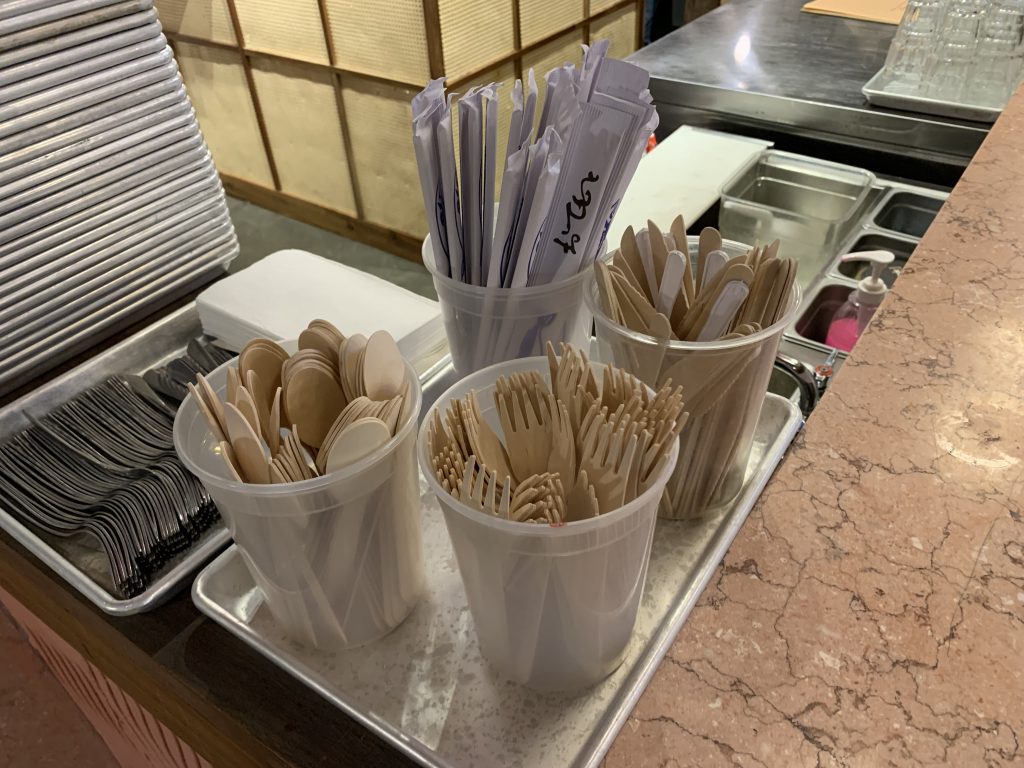City officials in Montreal are not certain whether the fear of fines is motivating people to follow the year-old single-use plastic ban. single-use plastic ban bylaw, but authorities are pleased with what they see as success.
Marie-Andrée Mauger, a member of the executive committee responsible for ecological transition and the environment, mentioned, “We have a 92-percent compliance rate.”
She added, “We’re really pleased to see that less than 40 tickets were issued after a second visit.”
The bylaw was put in place in March 2023 and applies to the 19 boroughs. It bans the use of most single-use plastic containers, such as cups, utensils, straws, and polystyrene, for on-site use, takeout, or delivery in restaurants and grocery stores.
Mayor Valérie Plante stated, “Our message is that there’s no excuse. Whether you’re a small business or a big brand, there’s no excuse.”
Exceptions include trays for raw meat and fish and items pre-packaged outside the business. The bylaw applies to 9,500 merchants. Fines range from $400 to $4,000. About 700 businesses, mostly large enterprises, are still not following the ban, according to the city.
Mauger explained, “Because the procurement issue is more challenging for them, since materials might not be sourced locally.”
Robin Simon, a grocery store owner, believes the city is moving in the right direction, but he wants authorities to go even further.
He suggested, “The city should urge every company to find an alternative to serving goods in something other than plastic.”
Simon wants the city to eliminate the exemption for items packaged before they are shipped to stores like his.
Elected officials emphasize that the ban on single-use plastics is just one step. The city aims to achieve zero waste by 2030, as the Terrbonne landfill, the only one in the Montreal area, is expected to reach full capacity by 2029.
Mauger mentioned, “We are currently establishing two local facilities to compost and produce renewable natural gas locally.”
She stated that Montreal is halfway towards achieving zero waste in landfills, but Karel Ménard from the Common Front for Ecological Waste Management noted that there is still a long way to go.
He remarked, “Many people dispose of recyclable material in the garbage. That’s a significant issue.”
Both he and city officials stress that both individuals and businesses have a role to play in reducing waste.



